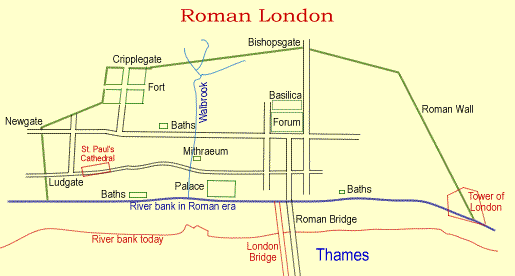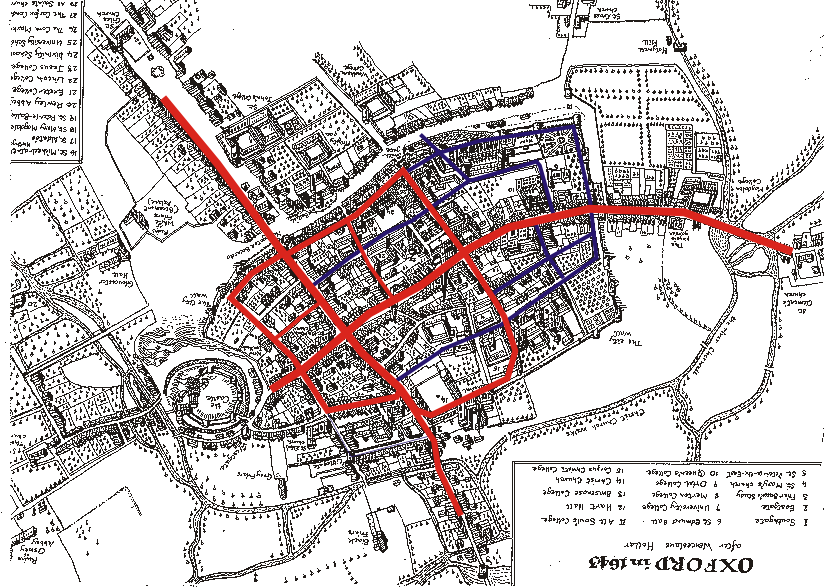I am quite aware that there are exceptions, thank you. What is your point?
The point is that you claimed that, prior to contact with the Iroquois Confederation, European states were formed by conquest or marriage. Consequently, states formed after contact with the Iroquois by means other than conquest or marriage (i.e. the US) were influenced by the Iroquois. If even a single counter-example exists, then this aspect of the case for Iroquois influence falls through.
Regarding Hobbes, to be honest, I don't view him as a very important influence on the US constitution. The most obvious borrowings (both verbal and substantive) in the text of the constitution are from Locke. Locke, as I said earlier (and if you have read his First Treatise, you will not deny this), was responding to Filmer, not Hobbes. The case of Hobbes, however, is interesting in its own regard, so if you have any evidence that he was indeed influenced (e.g. if catalogues of his books survive which show he was interested in the subject), I would be fascinated.
Let me clarify what I said earlier about this. You commented, as I understand it (correct me if I'm wrong), that the interesting part of Hobbes is the "Leviathan" - mob rule - and that his diagnosis of this problem was the same as that of the Iroquois. In the first place, I see no evidence for a fear of mob rule in the Iroquois constitution. In the second place, fear of mob rule was endemic to English political debate at the time.
Nope, that's not what I am saying. What I am saying is that they have influenced Europe, not that they must have (although that too is true), and certainly not that they necessarily must have in one particular way.
"They influenced Europe" and "They must have influence Europe" are near-identical statements. And you did say that
Further, Descartes' generation was already influenced by the new world. Note that the way of decision making of the northern Amerinds (not just the Iroquois) was strongly based on logical reasoning.
The obvious implication is that Descartes' generation borrowed logical reasoning from the northern Amerinds.
I have already pointed out that the basic principles of the Iroquois Constitution differed from those of the American Constitution in fundamental respects.
So have I. In many other fundamental respects they are much the same. Again: influence is not the same as carbon copy.
Now we're getting to the meat of the argument. We agree that important differences existed (although you seem to want to confine these differences to sexism and racism). The questions are: 1. Were there similarities? 2. If so, was there a causal chain involved?
1. You have, thus far, cited only one specific similarity (if there are more, I would like to hear about them):
Separation of powers. This exists in both constitutions, but not in the same form. The Iroquois constitution contains the following separated powers: 1. Five/ six groups of hereditary lords. 2. Subordinate officials, notably the war chiefs. 3. The men of each nation. 4. The women of each
nation. The lords check each other because no one tribe can make decisions; the war chiefs et al check them because of their duty to act on petitions and preserve decorum; and the men and women check them through the right of petition and deposition. This kind of system of checks on a hereditary ruling caste is not really very similar to the highly structured functional separation that prevails between judiciary, legislative and executive branches that prevails in the US constitution, but the US constitution is very similar to the British constitution of 1688 in this regard. It is therefore more reasonable to suppose that the US constitution was influenced by the British constitution.
2. Thus far, you have mentioned only one specific example which tends to show causal dependence: a co-drafter of the Constitution who was familiar with that of the Iroquois. Given that all of the drafters were familiar with the British constitution, this point seems weak. By Occam's razor, it seems more reasonable to suppose that the vague similarities which exist are coincidental than to posit an elaborate borrowing project which the drafters somehow forgot to mention anywhere.
It doesn't need to follow. It happened
.
You are repeating your thesis, not supplementing it. Please offer evidence.
Perhaps you are saying that they were richer and more powerful than the settlers.
Nope. I meant the English, the French, the Spanish, the Dutch, the Danes, the Swedes, and all the other European presences, both settlers and military. The Iroquois controlled the entire fur trade (that's what the wars with France were all about) and had the largest army with the most firepower until around the American revolution.
Are you arguing that the Iroquois could have held off all of the above in a war? Ok, no way to prove that that's wrong, but I think most historians might disagree. EDIT: I just read your later post. I no longer have any idea what you mean, since you have admitted that the Iroquois would have lost to the British in a war.
You say that it was easier for them to learn from the Iroquois than from their ancestors,
Yes. You see the same happening in Europe with the immigrants from Northern Africa. They are still in contact with the homeland, but they do not learn anything from it. Some are stuck in how the homeland was when they left, but most eventually accept the ways of their new home.
The analogy is not very exact. The settlers had their own settlements. The immigrants in, say, France do not. Moreover, since they mostly come from areas once controlled by France, they have already been heavily exposed to French culture.
Regarding differences between the US and Iroquois Constitution, you have not responded to any of the points I made regarding the different theories of government they imply.[.quote] Not sure what you refer to here. Obviously with such an onslaught of laughter I may have missed something.
Laughter may be the best weapon, but I am afraid that it is not a very good argument.
I had made a number of points about this, basically concerning the fact that the Iroquois constitution implies legitimation from the top down whereas the US one implies legitimation from the bottom up. You have not hitherto responded to them. This disappointed me, as I would be quite interested in seeing how you refute this.
I'm not an expert on city planning, but saying that the Iroquois must have influenced the settlers because both used grid patterns is a little like saying that France must have influenced the settlers because both used ploughs.
Not quite, because other peoples used plows as well, whereas the Iroquois were the only ones there to apply the grid. Nonetheless, yes such a statement would be entirely correct.
The Iroquois were not the only persons to apply the grid. It is a basic shape in geometry. Perhaps a better analogy might be "like saying that because both settlers and Russians used circles, the Russians must have influenced the settlers."
I did not say anything remotely like that.
Perhaps you could explain this to me, then:
The influence was a general one, where houses simply had more stories than in the old world, more than one family lived in these houses on separate floors, and then still more.
Where the Iroquois lived, the largest group of Settlers were Dutch. Danes and Swedes also settled in the area (the Swedes until they were removed by the Dutch). Only much later the English became the largest group.
This isn't strictly relevant anyway, because the question is the relative weght of European (not just British) influences vs. Iroquois influences. But I think you might be confused by the fact that many people called "dutch" in the registries were German. It was a corruption of deutsch. (E.g. Dutch County.)
I'm sure they didn't, especially since they (the Settlers) made a mess of it, but it happened nonetheless.
Again, you are restating your thesis, not providing evidence. Please cite documents showing that specific colonial architects were aware of and relied on Iroquois designs.
Edit: Argh, crossposted.

 They had been around since 2500 BC. They did not disappear and then reappear only after contact with the enlightened gridded Iroquois.
They had been around since 2500 BC. They did not disappear and then reappear only after contact with the enlightened gridded Iroquois.



